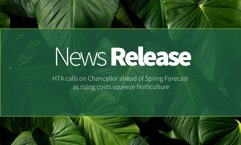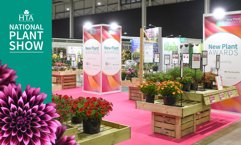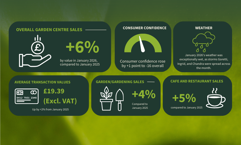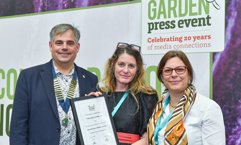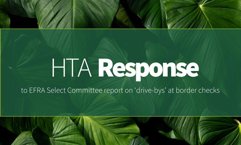
Growing media taskforce announces horticulture’s commitment to responsible sourcing
by Rachel McQuilliam
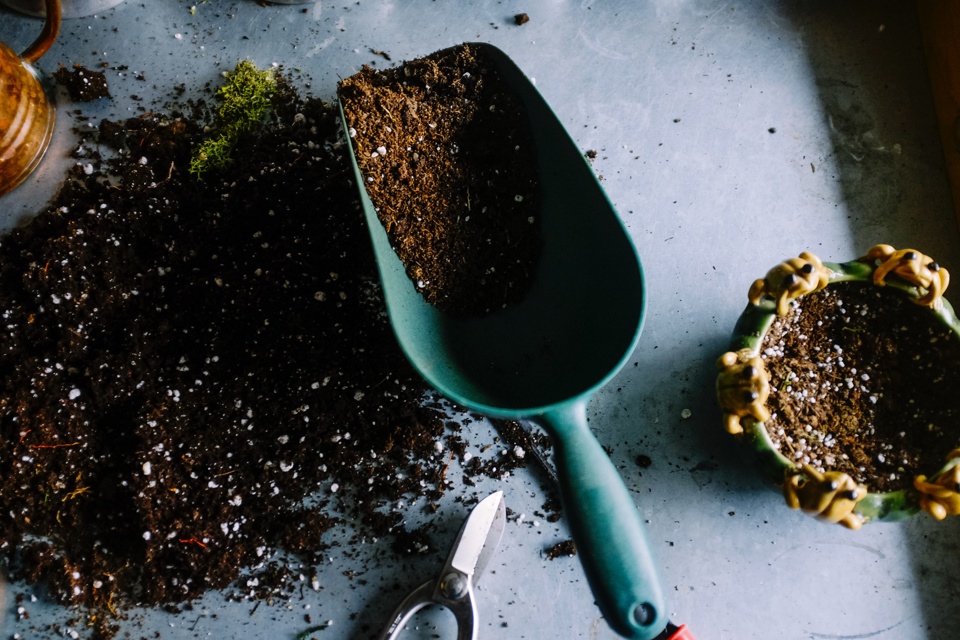
Key organisations from horticulture have committed to end the sector’s use of peat, pledging to remove it from the retail market as early as 2025 and no later than the end 2028. For professional horticulture, the range is between 2028 and 2030. Inside the existing target date, both are dependent on government support.
The growing media task force, an industry group consisting of Garden Centre Association (GCA), National Farmers Union (NFU), Royal Horticultural Society (RHS), Growing Media Association(GMA) and Responsible Sourcing Scheme (RSS) and coordinated by the Horticultural Trades Association (HTA), have announced they will publish a plan in the summer outlining how these targets will be achieved. The group’s ‘Responsible Sourcing Statement’ released today highlights how these targets are dependent on support from government, the availability of alternatives and a principle of exceptions for certain types of plants. It outlines the importance of the Responsible Sourcing Scheme for Growing Media initiative, which seeks to communicate the environmental impact of all growing media materials. There needs to be full consideration of what the environmental impact of other materials are when peat is removed.
Speaking on behalf of the group as new data also shows the increase in use of alternatives to peat and the percentage of peat contained in growing media continues to fall, Chairman of the HTA, James Barnes, said:
"While just 0.04% of the UK’s peatlands are extracted for horticulture, as a ‘green’ industry we recognise the value of peat as a store of carbon and are firmly committed to removing its use from horticulture. Extraction from England’s peatlands has halved since 2011 and to continue this we need reliable sources of quality alternatives in the quantities required to replace peat. Members of the RSS are committed to achieving and finding new and novel materials.
“The detail around how we do all this needs reasoned and proportionate consideration. We need to make sure any change over to new materials are environmentally responsible. The industry’s RSS is fully committed to this and will not introduce materials which potentially have negative environmental impacts. We need an evidenced based approach, working closely with government to ensure there is the essential support to access peat alternatives and enable the industry to make the changes needed to transition away from peat. We must ensure our horticultural industry is enhanced, not damaged and only when these issues are addressed can the necessary change happen.”
The growing media taskforce have agreed to work together on the detail of a plan covering eight focus areas:
- Identifying and addressing technical barriers to peat removal through research and development
- Working with government to accelerate changes in facilities and infrastructure to enable peat removal
- Working with government to secure access to supplies of established peat alternatives
- Working with government to support innovation in the development of novel peat alternatives - this includes the need for government to tackle the barriers to change; including equal access to wood fibre material, or the issues surrounding the definition of by-products.
- Providing consumer education and information on responsibly sourced growing media
- Ensuring support and a level playing field for UK growers through the transition away from peat
- Measuring the environmental impact of all growing media substrate currently available and novel materials
- Providing evidence and data to track progress on peat removal and to inform policy
The group’s retailer, grower, manufacturer and responsibility sourcing scheme workstreams will work with stakeholders from industry, government and the voluntary sector to put together realistic objectives to each of these sections. A full plan will be published in the summer.
ENDS





